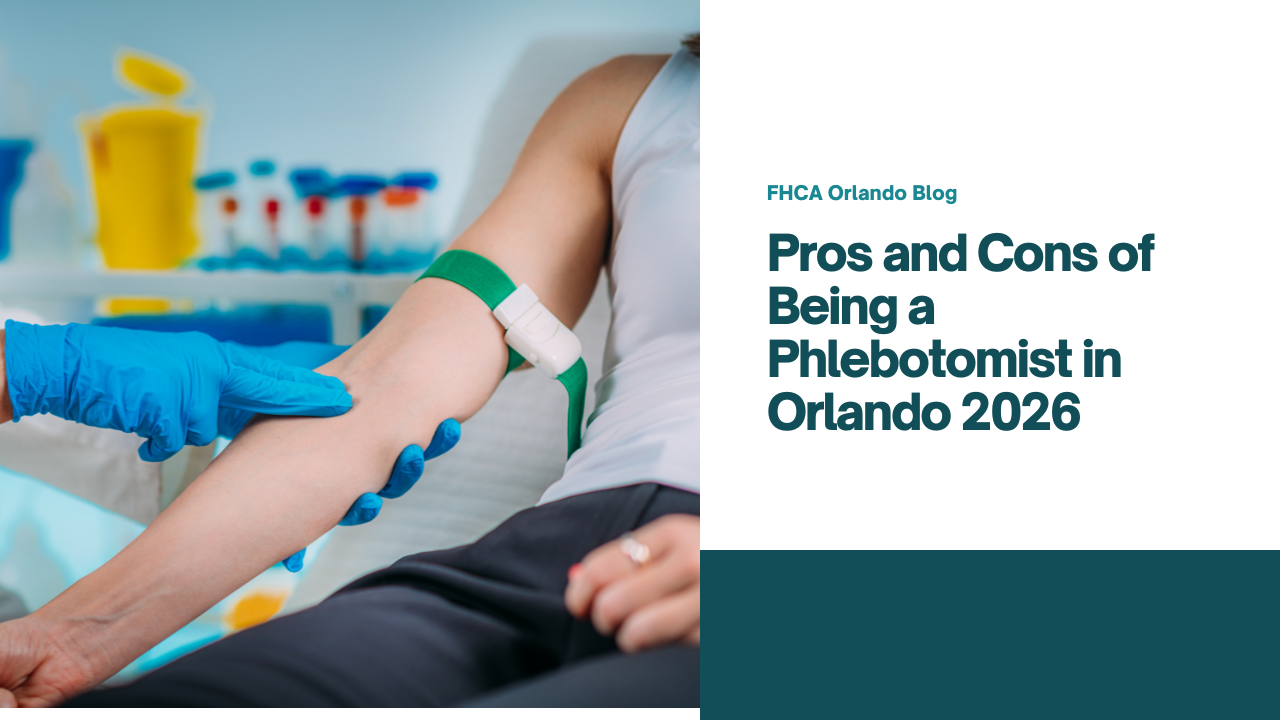Soft Skills Needed to Become a Medical Assistant
Aug 13, 2025
As you prepare for a healthcare career as a medical assistant, it's easy to focus on clinical skills like taking vitals or scheduling appointments. But to truly succeed in the medical field, you also need a strong foundation of soft skills.
Medical assistants need soft skills to complement their technical abilities, including effective communication, empathy, teamwork, adaptability, and problem-solving. These qualities help build patient trust, handle challenges, and contribute to a positive healthcare environment.
Table of contents
- Why are soft skills important for medical assistants?
- Essential soft skills every medical assistant should have
- How to build soft skills during a medical assistant program
- How to highlight soft skills on your medical assistant resume
- FAQs: soft skills for medical assistants
- Ready to build the skills that make a difference?
Why are soft skills important for medical assistants?
Soft skills for medical assistants are essential because they influence interactions with patients, physicians, and other healthcare professionals. From active listening to demonstrating empathy, these abilities impact every aspect of the workday.
Many employers consider strong soft skills to be just as important as technical expertise. As outlined in soft skills for medical assistant these qualities are what help a medical assistant excel in the role, going beyond meeting qualifications to achieving true success.
Essential soft skills every medical assistant should have
Many employers consider strong soft skills to be just as important as technical expertise. These qualities are what help a medical assistant excel in the role, going beyond meeting qualifications to achieving true success.
Communication skills
Medical assistants consistently communicate with patients and healthcare team members. Whether updating patient records, addressing patient concerns, or using medical terminology in conversations, effective communication remains essential.
Empathy and compassionate care
Patients often experience feelings of vulnerability. Demonstrating empathy, interpreting body language, and delivering compassionate care help build trust and enhance the patient’s overall well-being.
Teamwork and interpersonal skills
Medical assistants work alongside medical professionals, nurses, and physicians. Strong interpersonal communication and teamwork enable them to remain coordinated and focused on delivering quality patient care.
Adaptability and problem solving
The healthcare field moves quickly, with responsibilities that can shift from updating records to assisting with medical billing or performing laboratory tests. Flexibility and the ability to solve problems calmly help medical assistants keep operations running smoothly. If you're more interested in working behind the scenes, explore how to become a medical lab assistant as an alternative career path in the healthcare field.
Time management and prioritization
From checking in patients to assisting with medical coding, essential medical assistant skills and schedules can fill up quickly. Strong time management skills allow them to provide quality care without feeling rushed.
How to build soft skills during a medical assistant program
Developing strong soft skills is just as important as mastering technical tasks in medical assistant training. With accelerated medical assistant program, students can build communication, teamwork, and problem-solving abilities in less time, preparing them for success in real-world healthcare settings. In the same way, understanding whether a medical assistant is a healthcare provider helps you see how your soft skills tie into your professional identity and responsibilities.
Practice communication and emotional intelligence in class
During a medical assistant program, students learn to communicate clearly, listen attentively, and respond effectively to patient needs. At FHCA, instructors utilize role-playing exercises and provide feedback to help students develop emotional intelligence and enhance their communication skills.
Gain experience during clinical training
Clinical training is where soft skills truly come into practice. Students work with real patients, adapt to unexpected situations, and apply interpersonal skills in authentic healthcare settings, all while supporting the medical team. It’s important to know how long is a medical assistant program so students can anticipate the time commitment before starting their hands-on training.These hands-on experiences develop the essential skills that every medical assistant needs beyond the classroom.
How to highlight soft skills on your medical assistant resume
Soft skills are a vital part of a medical assistant’s success and should be showcased on a resume. This guide explains how to effectively present communication, teamwork, and problem-solving abilities to stand out to potential employers.
Include the right keywords
When applying for jobs, list medical assistant soft skills like:
- Active listening
- Problem solving
- Compassionate care
- Team collaboration
- Time management
These show you can balance clinical skills with a human-centered approach.
Tailor your resume to each job
Look at the job description and match the language. If they focus on teamwork or patient care, emphasize those in your application. Demonstrating your ability to support a healthcare team shows you're a strong fit.
Soft skills for medical assistants FAQs
Understanding the importance of soft skills is key to thriving as a medical assistant. This FAQ section answers common questions about which personal qualities matter most and how they impact daily work in healthcare settings.
What’s the best way to improve communication as a future medical assistant?
Practice active listening, speak clearly, and learn to read non-verbal cues. During your training, take feedback seriously and apply it when working with real patients.
Are soft skills more important than certification?
You need both. Certification proves your education and clinical skills, but soft skills show you can thrive in a busy, people-centered environment.
Can I build soft skills even if I’ve never worked in healthcare before?
Your training program and externship will help you develop soft skills through real interaction and guided practice. Many students improve quickly, even without prior experience.
Ready to build the skills that make a difference?
FHCA’s medical assistant program in Orlando helps you build both clinical and soft skills that truly make a difference, like empathy, teamwork, and professionalism.
With hands-on training and career-focused support, you’ll be ready to thrive in any healthcare setting.
Enroll now and start developing the skills that employers value most.









